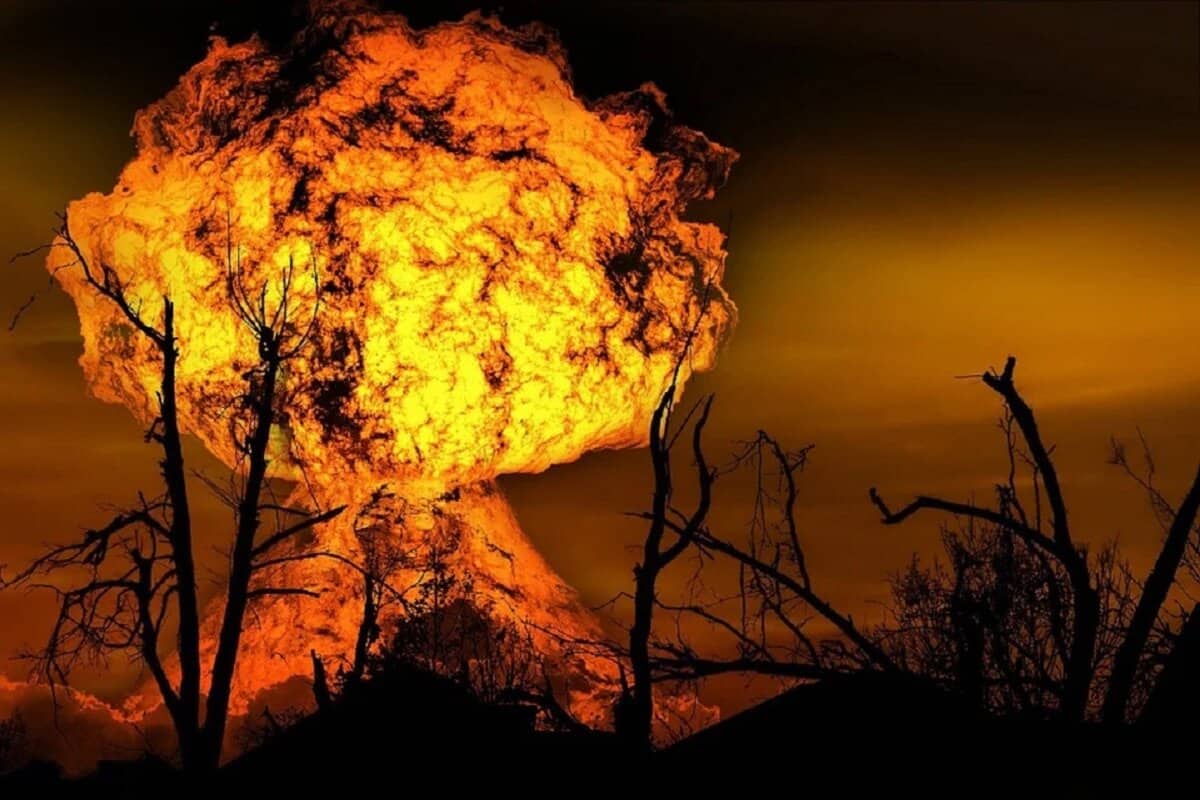
There are more and more discussions concerning the use of nuclear weapons as a result of the aggressive behavior of some nations. Despite the prevalent misconception that a nuclear assault results in the extinction of all life, if you abide by a few guidelines, you still have a chance of surviving a nuclear explosion.
You must first identify the explosion to better comprehend what to do in the case of a nuclear blast. This is not challenging since a nuclear explosion differs much from a conventional one. Its explosive force can be thousands of times stronger than that of the greatest air bomb.
How to avoid radiation contamination?
Radiation dosage can be decreased by reducing the exposure duration. The radiation dosage greatly reduces with increasing distance from the radiation source. All types of rays will not penetrate areas shielded with barriers made of lead or concrete. Your safety during a nuclear explosion hinges on every millisecond, therefore, we’ll go through the various phases point by point.
Emergency kit
Needless to say, first and foremost, an emergency kit should always be near. This kit should contain:
– Food and water that are safely sealed,
– a radio powered by batteries,
– a flashlight and some extra batteries,
– first aid necessities,
– all documents important to you.
Important: Do not forget to stock up on iodine in advance. Also, take a dosimeter with you if you happen to own one.
The flash will be the first thing you notice. Such explosions are characterized by a strong burst of blinding light as their major characteristic. It is apparent even on the sunniest day. This is the first component of the spectacular mechanism of a nuclear explosion: infrared radiation. Although it only acts for a brief period, it is so powerful that it may burn exposed body parts.
As a result, when you see a flash, you should do the following:
Fall to your face at once. Lay on the ground with your head away from the explosion’s epicenter, or better yet, hide behind any object. When falling, cover your head with clothing or your hands.
A fireball, a nuclear mushroom cloud, and a shockwave will follow. After the flash, a region that resembles a flaming fireball is created. Its intensity at the beginning is far greater than the radiance of the sun. A fireball cannot be viewed without eye protection. The fireball transforms into a whirling cloud as its volume grows quickly. The smoke and dust rise from the ground at the same time. Then comes the nuclear mushroom. The term “nuclear mushroom” refers to the stage of the explosion when it looks like a mushroom.
How to act in the first minutes of a nuclear explosion?
– Keep your eyes away from the nuclear mushroom. Use a blanket or any suitable piece of clothing to protect your face, mouth, and nostrils.
– Be careful, since different fragments and garbage will fly in your way from the epicenter.
– Proceed calmly to the closest shelter. Keep in mind that you can use subway stations. Subway tunnels, station basements, or basements of residential complexes are also appropriate.
Go above the 10th level, choose the most remote room without windows, and block the door with rags if you find yourself suddenly unable to find an exit. The same holds for everyone who was stuck in the flat when the explosion occurred.
The idea that no bomb shelter will withstand a nuclear explosion is untrue. The Japanese man Eizo Nomura, who was in an ordinary basement of an average house when the nuclear explosion occurred in Hiroshima in 1945, managed to survive.
In the shelter
If at all possible, change your clothes right as you enter the shelter since there is a chance of radioactive contamination. Additionally, if at all feasible, carefully cleanse any exposed skin regions as well as any wounds you may have.
Use any protection to cover your mouth and nose while waiting for the radioactive cloud to pass. Shut off the airflow, shut all doors, and use a moist cloth to seal any spaces near doors or windows.
Keep an ear to the signal from the authorities before venturing outdoors. Consume only products that are in sealed packaging. Use only bottled water. We hope that we will never need these tips in practice. However, warned means prepared. Stay safe!




